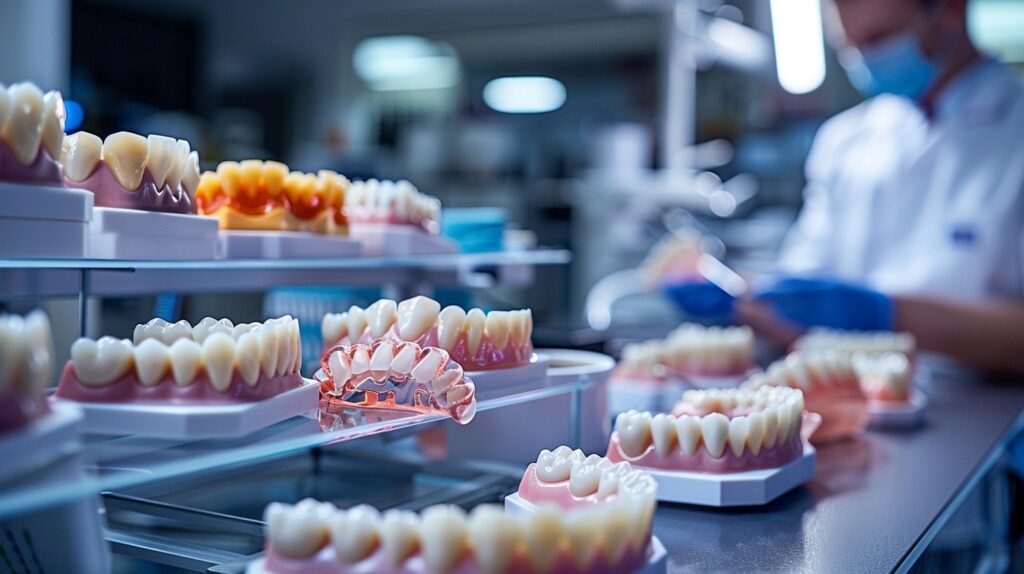There are several types of dentures, each designed to replace missing teeth and restore function and aesthetics. Here are the main types of dentures:
1. Complete Dentures (Full Dentures)

- Description: Replace all teeth in the upper or lower jaw.
- Usage: Used when all teeth are missing.
- Material: Typically made of acrylic resin and sometimes a combination of acrylic and metal.
- Features: Custom-fitted to the patient’s gums, held in place by suction or adhesive.
2. Partial Dentures
- Description: Replace one or more missing teeth in a row but not an entire arch.
- Usage: Used when some natural teeth remain.
- Material: Made of a metal framework (usually cobalt-chrome) with acrylic resin teeth and gum areas.
- Features: Attach to existing teeth with metal clasps or precision attachments, offering a removable option to bridge gaps.
3. Implant-Supported Dentures
- Description: Dentures supported by dental implants, which are surgically placed into the jawbone.
- Usage: Provides better stability and chewing function compared to traditional dentures.
- Material: Typically made of acrylic, porcelain, or a combination of both, attached to implants.
- Features: Can be fixed (permanent) or removable, offering a more natural feel and function.
4. Immediate Dentures
- Description: Temporary dentures placed immediately after teeth are extracted.
- Usage: Provides immediate replacement of teeth, allowing for proper healing.
- Material: Made of acrylic, and may need adjustments as the gums and bones heal.
- Features: Typically used as a temporary solution until permanent dentures are made.
5. Overdentures
- Description: Dentures that fit over a small number of remaining natural teeth or implants.
- Usage: Used to preserve natural teeth or utilize dental implants for additional support.
- Material: Acrylic with attachments that fit over existing teeth or implants.
- Features: Offers improved stability and comfort, often preferred for patients with some healthy teeth remaining.
6. Snap-In Dentures
- Description: Dentures that snap onto dental implants or anchors, offering strong retention.
- Usage: Suitable for patients looking for a more secure fit than traditional dentures.
- Material: Made from acrylic with snap-on attachments.
- Features: Easy to remove and clean, highly stable, and less likely to shift in the mouth.
7. Flexible Dentures
- Description: Partial dentures made from flexible materials like nylon, offering a more comfortable fit.
- Usage: Ideal for patients with metal allergies or those seeking a less rigid alternative.
- Material: Made from a flexible, lightweight material, usually without metal clasps.
- Features: More comfortable, aesthetically pleasing, and fit snugly against the gums.
Each type of denture serves different needs and patient preferences, and the choice often depends on factors such as the number of missing teeth, budget, and desired level of comfort and functionality. an explanation of some type of denture to replace missing teeth.
